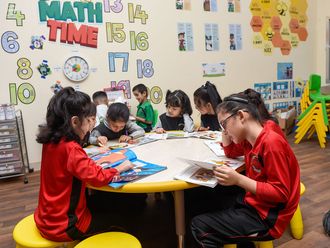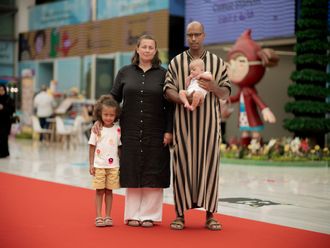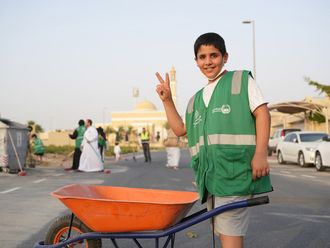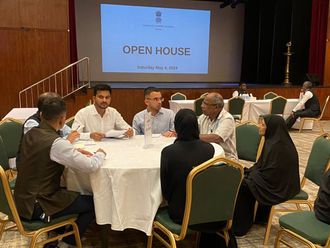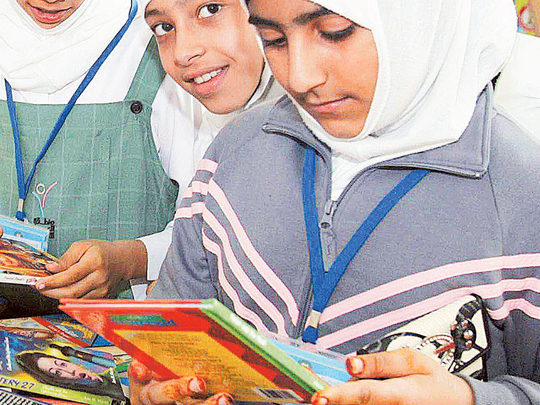
Abu Dhabi: Reading is slowly becoming an activity of choice for Abu Dhabi schoolchildren, and the latest research shows that 88 per cent of them read on a daily basis.
The research, conducted by the emirate’s education sector regulator, the Abu Dhabi Education Council (Adec), found that five per cent of public school pupils and two per cent of private school pupils spend more than three hours every day on reading. Meanwhile, 42 per cent of those in public schools and 40 per cent of children in private schools read for up to 30 minutes daily.
“Our figures show that the rate of reading has risen, and we hope all schoolchildren will soon begin to read every day. We also want to increase the number of hours children spend on reading since this is the key to creating a knowledge-based economy capable of progress,” Dr Amal Al Qubaisi, director-general of Adec, said in the capital on Monday.
To that end, the authority launched the third edition of Abu Dhabi Reads, a 24-day campaign that aims to popularise reading among children in the emirate.
As part of this initiative, schools will organise daily activities that promote reading, including workshops, lectures and plays. All of the emirate’s more than 340,000 pupils, from kindergarten up to Grade 12, are expected to participate.
“Schools are allowed to design and implement their own activities. For example, morning assemblies must stress reading, and many institutions will organise a ‘Character Day’, where younger children act out one of their favourite fictional characters,” said Sara Al Suwaidi, section manager for pedagogy and learning resources at the Adec.
In addition, schools will also have a set time for reading, known as Drop Everything And Read (DEAR).
“So when we ring the DEAR bell, children must put away everything else and read a book of their choice,” Sara explained.
Children will also have a chance to participate in a competition for writing the best short story, while teachers will be awarded for developing the most innovative strategy that helps develop Arabic and English reading skills.
This edition of Abu Dhabi Reads will also support special needs children by providing them with any equipment and assistance they require to undertake reading.
In addition, parents will be invited to an activity-filled day next month (May) that urges them to encourage reading among their children.
The campaign will culminate in the 24th Abu Dhabi International Book Fair, which will be visited by hundreds of schoolchildren.
“Of course we hope to push reading as an activity among both children and adults throughout the year. This is why a pilot programme has opened libraries at certain public schools to all residents for a few hours every day, and we hope to extend this based on the feedback we receive,” Dr Amal added.



_resources1_16a30b2f411_small.jpg)
